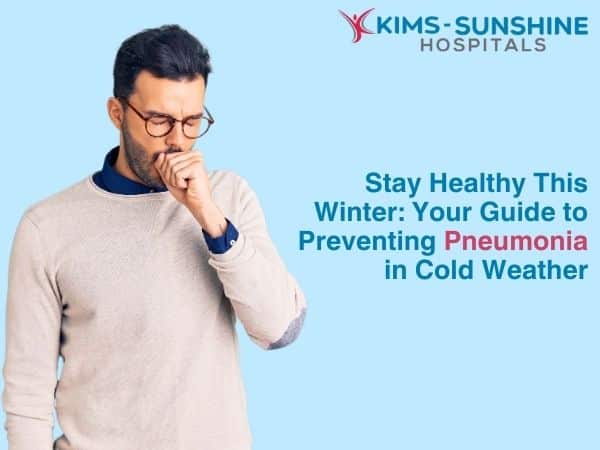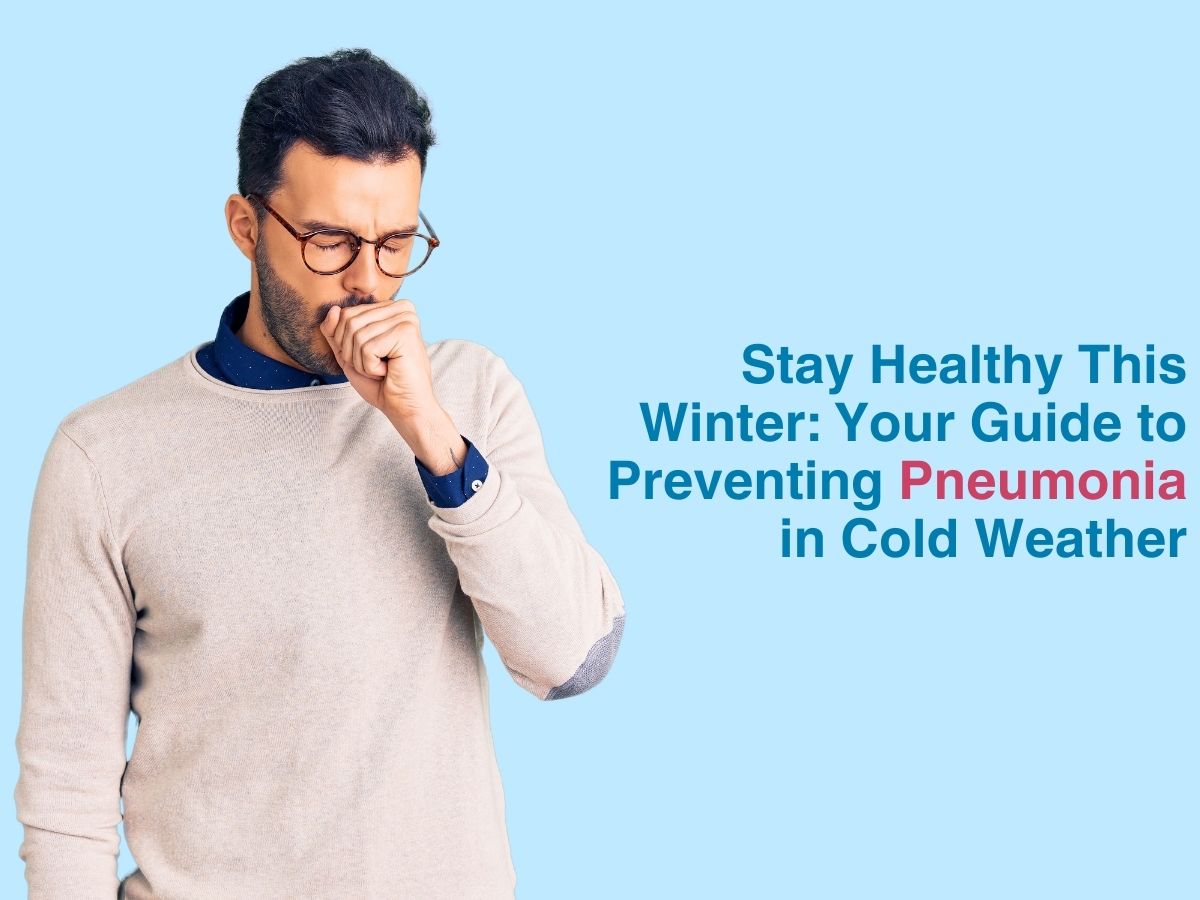
Stay Healthy This Winter: Your Guide to Preventing Pneumonia in Cold Weather

Pneumonia is a medical condition that causes the buildup of fluid in the lungs, leaving you feeling breathless and very tired. It can be caused by a variety of pathogens like bacteria, fungi and viruses. Winter is flu season and you can get a cold due to any of these pathogens. Pneumonia is caused when you don’t take good care of yourself in the cold months and let a seemingly ‘normal cold’ progress to a full-blown infection. Let us learn more about why the risk of suffering from pneumonia increases this season.
How Cold Weather Increases Pneumonia Risk-
Winters generally mean chilly and dry air, low humidity levels and an increased risk of contracting allergies or infections. Though pneumonia comes much later, winter is the season for a huge increase in opportunistic infections affecting the very young and very old. This is because they have immature or compromised immune systems in place. The cold and dry air can cause the nasal passages to get inflamed.
Staying Healthy In Winter To Avoid Pneumonia-
Winter months also mean people craving warm and comforting foods, which means dietary preferences may lean more towards unhealthy choices. Let us look at different ways to protect against pneumonia in the winter months-
- Eating seasonal produce is your best bet for high amounts of nutrition. You can hence make it a priority to include greens like fenugreek, mustard, spinach, amaranthus and herbs, along with sweet pumpkins, squashes, carrots – carotenoid rich veggies and fruits like oranges, grapefruit, lemons- which are all rich in Vitamin C. Drink lots of water and talk to your doctor about Vitamin D supplements.
- Basic hygiene and washing your hands regularly in the right way can help you the most, actually. So, wash with soap and water and make sure to lather up for at least 20 seconds or even longer. You can then wash it all off. Opt for an alcohol based sanitizer only when you cannot find soap and water.
- Good hygiene also means that you NEVER cough or sneeze on someone or on a surface- which means you should remember to carry tissues, a kerchief or sneeze into your elbow.
- Making sure to get vaccinated annually- like getting your flu vaccinations on time can help loads.
- Don’t touch contaminated surfaces and make it a habit to wipe them down. Examples can include work tables, cupboard or wardrobe handles, kitchen counter and supplies, staircase handrails, door knobs or handles etc.
- Stay home and stay safe. Don’t expose yourself by going to crowded places or hanging out with someone who is already ill.
- Aim to get enough sleep every night.
- Dress warm – wear sweaters, scarves, dupattas, full sleeved clothes, gloves and socks.
- If you are asthmatic, diabetic or have other chronic conditions, then be more proactive about management.
- Lastly, if you notice any symptoms like chest pain, tightness and shortness of breath, then get medical assistance immediately.
The good news about treatment is that it is mostly non-invasive, while diagnosis itself majorly relies on imaging and simple blood tests.
Conclusion
We have looked at simple but super effective ways to boost your immune system to fight pneumonia in winter. These measures include eating a proper, nutritious diet and getting enough exercise, along with other lifestyle related changes. Pneumonia can get serious in a few days and then the affected individual may require treatment with antibiotics, or even supportive care with hospitalisation. Oxygen levels can go dangerously low and hence oxygen therapy may be suggested at times, depending on a case-by-case scenario. Not smoking can be a huge relief for your lungs in the long run. Let us know what else you’d do to stay pneumonia-free this winter.
Frequently Asked Questions
How does cold weather increase the risk of pneumonia?
Are there specific vaccinations recommended to prevent pneumonia in cold climates?
What are the early signs of pneumonia that I should watch for in winter?
Can wearing warm clothing help prevent pneumonia in cold weather?
Are there any home remedies that help in preventing pneumonia in cold seasons?

Dr. S. Swathi Reddy
MBBS, MD (Pulmonary Medicine)
Consultant Interventional Pulmonologist Specialist in Sleep Medicine & Allergy






